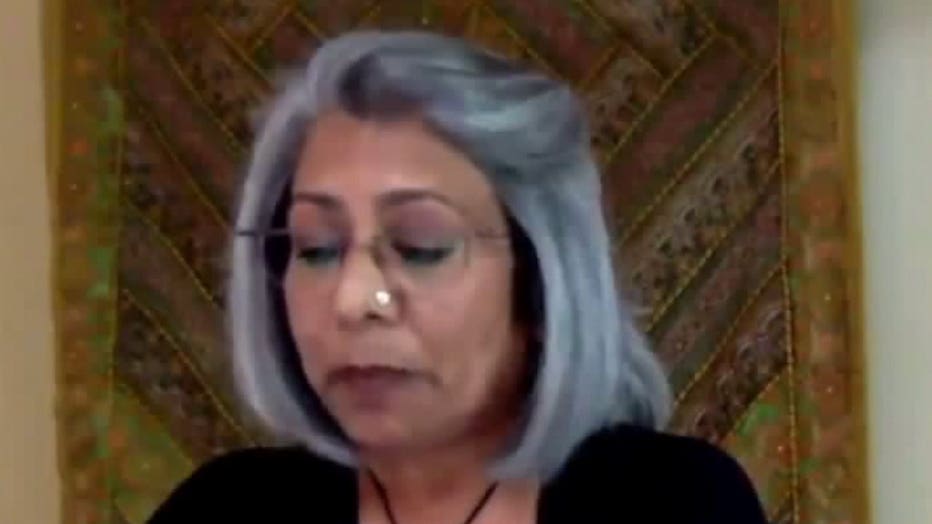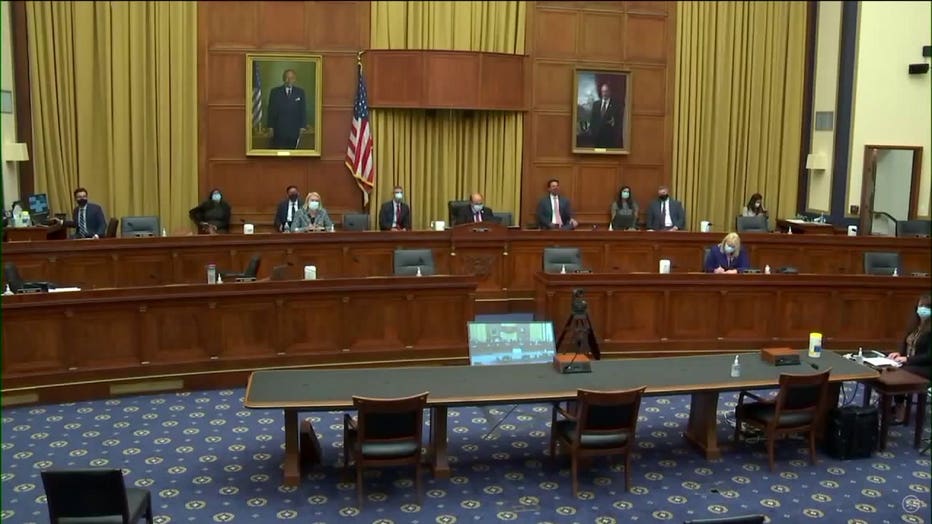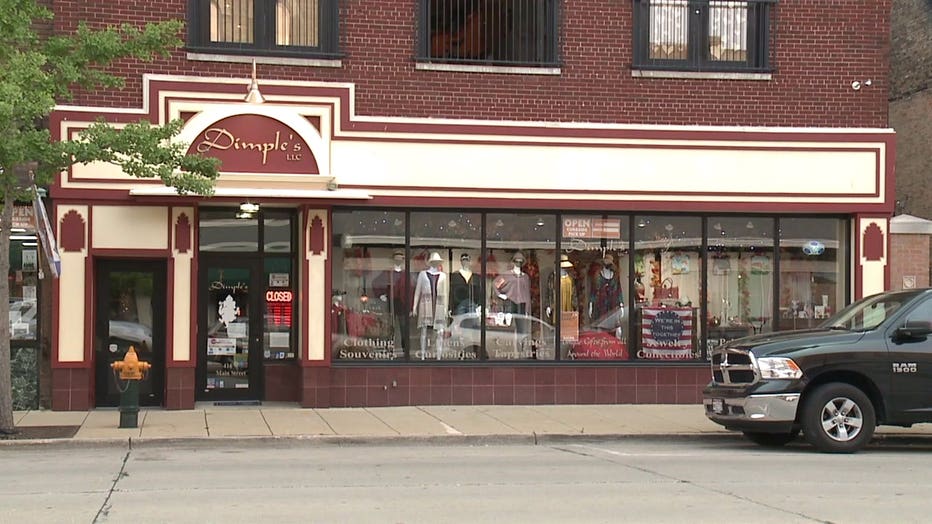Racine business owner testifies before House, fights for virus aid

Racine business owner testifies before House, fights for virus aid
A U.S. House subcommittee on Wednesday, Sept. 23 held a hearing on the role of immigrants as essential workers during the COVID-19 pandemic.
RACINE, Wis. - A U.S. House subcommittee on Wednesday, Sept. 23 held a hearing on the role of immigrants as essential workers during the COVID-19 pandemic.
Among those who testified was a Racine business owner whose shop was forced to close during Wisconsin's "Safer at Home" order.
Racine business owner Dimple Navratil and her husband, Denis, run Dimple's -- a home decor, gift and rental store in Racine.
Navratil was born in India. She met her husband while visiting the U.S. and became a citizen in the early 2000s.

Dimple Navratil
"Our business has grown slowly and steadily over the years, and we expected the same this year," Navratil said. "Then COVID hit."
The Navratils closed their doors because of Wisconsin's "Safer at Home" order, which was later struck down in court.
When they applied for grants from the city, the Navratils claim they were denied because of Denis' attendance at an "Open Wisconsin" rally in April. The couple has since charged that their first amendment rights were violated.
"We considered selling the building and moving out, but after thinking through it all we decided that we were going to fight this injustice," Navratil said. "Our business has been in downtown Racine for 21 years."

U.S. House of Representatives subcommittee hearing on the role of immigrants as essential workers during the COVID-19 pandemic
"That is, I find, pretty weak sauce as a reason to deny the grant and to punish you for your husband's participation in a peaceful protest," said Rep. Andy Biggs (R-Arizona).
"We support people like you, small business owners like you -- regardless of political affiliations," Rep. Debbie Mucarsel-Powell (D-Florida) said. "I don't know why we have to politicize everything in this committee when we're talking about immigration."

Dimple's in Racine
Racine said it received more than 350 applications, totaling nearly $3 million with only $900,000 to dole out -- led than half of the amount applied for.
In June, Racine Mayor Cory Mason said in a statement, in part: "Many great city businesses didn't get funded because there were simply not enough funds to go around. However, if an applicant was in violation of laws or city ordinance, not conforming to zoning requirements, or hadn't paid their taxes, that applicant was less competitive."
FREE DOWNLOAD: Get breaking news alerts in the FOX6 News app for iOS or Android.
The Navratils said nearly half -- or more -- of their business normally comes from fundraisers, which were quickly canceled as the pandemic hit and continues now, more than six months on.
They also told FOX6 News that they are in the process of pursuing legal action in the matter.
Full statement from Mason:
“The small business grants were given out through a competitive grant process. These were discretionary grants and no one was entitled to funding. Between the two rounds of grants, the City received 357 applications totaling almost $3 million in requests, and we had a total of $900,000 to give out, which went to 164 businesses. That means we had funding for less than half of all the applicants. Many great City businesses didn’t get funded because there were simply not enough funds to go around. However, if an applicant was in violation of laws or city ordinance, not conforming to zoning requirements, or hadn’t paid their taxes, that applicant was less competitive.
"As Mayor, it is my duty to protect the public health of our City's residents. While I certainly support the rights of free speech and assembly, I cannot in good conscience send scarce City resources to a person or business that willingly jeopardized public health, especially when they were competing with other businesses who were not as flagrantly violating safety measures. If an applicant was openly violating the statewide "Safer at Home" order and the public health emergency under which the City was operating to help mitigate the spread of coronavirus, that applicant would compete less favorably. For instance, participating in mass gatherings outside of our community, such as a rally with a thousand or more individuals at the State Capitol, only served to put City residents at unnecessary risk, and was certainly factored into the funding determinations. When it comes to disbursing discretionary funds aimed at helping businesses who were sacrificing to protect public health, the City is not going to reward business owners who took reckless behaviors that risked the health of our community.”


